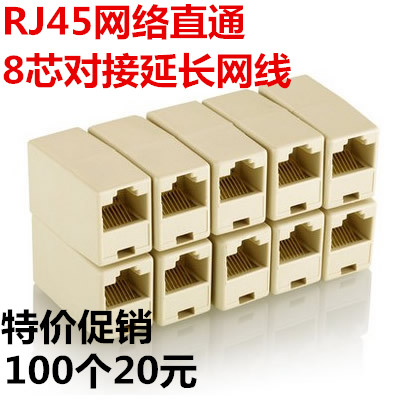交换机与集线器:构建企业级网络的基石
观想沮
2024-10-24 05:30:46
0次
**交换机与集线器:构建企业级网络的基石**
在企业级网络建设中,交换机和集线器扮演着至关重要的角色。这两者都是网络架构的基石,为企业提供高效、可靠的通信和数据传输服务。
一、交换机
交换机是一种网络设备,用于在局域网(LAN)中连接多个设备,并实现数据包的快速转发。它通过识别和过滤网络中的数据流量,将数据包准确地传输到目标设备,从而提高网络性能和效率。
在构建企业级网络时,交换机的重要性体现在以下几个方面:
1. 高性能:交换机采用高速芯片进行数据处理,能够快速转发数据包,减少网络拥堵和延迟。 2. 灵活的连接:交换机支持多种连接方式,如铜缆、光纤等,能够灵活地适应不同的网络环境和需求。 3. 安全性:交换机可以提供访问控制和安全策略,保护企业网络免受未经授权的访问和攻击。 二、集线器 集线器是一种网络设备,主要用于将多台计算机连接在一起,形成一个共享的网络环境。它通过集中共享物理链路,实现多台计算机之间的数据传输和共享。 在企业级网络中,集线器的作用主要体现在以下几个方面: 1. 扩展性:集线器可以轻松地扩展网络规模,使更多的设备能够接入网络。 2. 成本效益:相比其他网络设备,集线器的成本较低,适用于大型企业的初期建设和扩展。 3. 兼容性:集线器支持多种网络设备和协议,具有良好的兼容性。 三、综合比较与应用 交换机和集线器在企业级网络中各有其应用场景和优势。交换机更注重于高性能、灵活性和安全性,适用于需要高速、稳定数据传输的应用场景;而集线器则更注重于扩展性和成本效益,适用于初期建设和扩展阶段的企业。在实际应用中,企业可以根据自身需求和预算,选择合适的设备进行组合使用。 **Translated Version**: Switches and Hubs: The Cornerstone of Enterprise-Level Network Construction In the construction of enterprise-level networks, switches and hubs play a crucial role. Both are the cornerstones of network architecture, providing efficient and reliable communication and data transmission services for businesses. **Switches** A switch is a network device used to connect multiple devices within a Local Area Network (LAN) and enable rapid forwarding of data packets. By identifying and filtering data traffic in the network, switches accurately transmit data packets to the target device, thereby improving network performance and efficiency. In building enterprise-level networks, the importance of switches is reflected in the following aspects: 1. High performance: Switches use high-speed chips for data processing, enabling fast forwarding of data packets and reducing network congestion and latency. 2. Flexible connectivity: Switches support various connection methods, such as copper cables and optical fibers, allowing flexible adaptation to different network environments and needs. 3. Security: Switches can provide access control and security policies to protect enterprise networks from unauthorized access and attacks. **Hubs** A hub is a network device that is primarily used to connect multiple computers together, forming a shared network environment. It achieves data transmission and sharing between computers through centralized shared physical links.In enterprise-level networks, the role of hubs is reflected in the following aspects:
1. Extensibility: Hubs can easily expand the scale of the network, enabling more devices to connect to it. 2. Cost-effectiveness: Compared to other network devices, hubs have a lower cost, making them suitable for the initial construction and expansion of large enterprises. 3. Compatibility: Hubs support a variety of network devices and protocols, demonstrating good compatibility. **Comparison and Application** Switches and hubs each have their application scenarios and advantages in enterprise-level networks. Switches focus more on high performance, flexibility, and security, making them suitable for applications that require high-speed and stable data transmission. On the other hand, hubs focus more on extensibility and cost-effectiveness, making them suitable for the initial construction and expansion stages of enterprises. In practical applications, businesses can choose suitable equipment for combined use based on their own needs and budgets.下一篇:网络配件性能对比,你选对了吗?
相关内容
热门资讯
"网络配件的五大功能与作用"
网络配件是实现网络连接、数据传输及保障网络安全的重要硬件设备,具有连接、传输、信号处理、管理及安全五...
网络配件市场现状:你了解的还有...
网络配件市场快速发展,新型配件如高速适配器、光纤连接器、网络交换机、5G设备、无线网络扩展器、网络摄...
打造超快网速,从这些网络配件开...
为了实现超快网速,需要从路由器、网线、网络交换机和网卡等多个网络配件进行优化和升级,确保网络性能、稳...
路由器天线延长线:增强信号覆盖...
本文介绍了路由器天线延长线的定义、选择、安装与使用,以及注意事项和增强信号的其他方法。路由器天线延长...
扩展网络覆盖,从这些网络配件开...
文章摘要:在数字化时代,扩展网络覆盖至关重要。从路由器、网线与交换机、无线接入点与桥接器、网络摄像头...
网卡与转换器:网络连接的双重保...
文章介绍了网卡与转换器在网络连接中的重要作用,两者相辅相成,共同形成网络连接的双重保障。网卡为计算机...
提升工作效率:网络配件的挑选与...
本文详述了网络配件的挑选与使用技巧,包括路由器、网线、交换机和网卡的挑选,以及使用过程中的注意事项,...
深度解析:网络配件的种类与功能
本文详细解析了网络配件的种类与功能,包括传输介质、连接设备和接口设备等,并介绍了它们在数据传输、网络...
网络安全更上一层楼:必备的网络...
网络安全关乎信息传输处理安全,需采取多项措施。包括硬件安全选择与维护、网络配件安全配置如访问控制、防...
深入解析网络配件市场中的热门产...
摘要:
本文详细解析了光纤跳线在市场中的热门地位,探讨了其功能特点、应用领域及市场现状。光纤跳线因...



